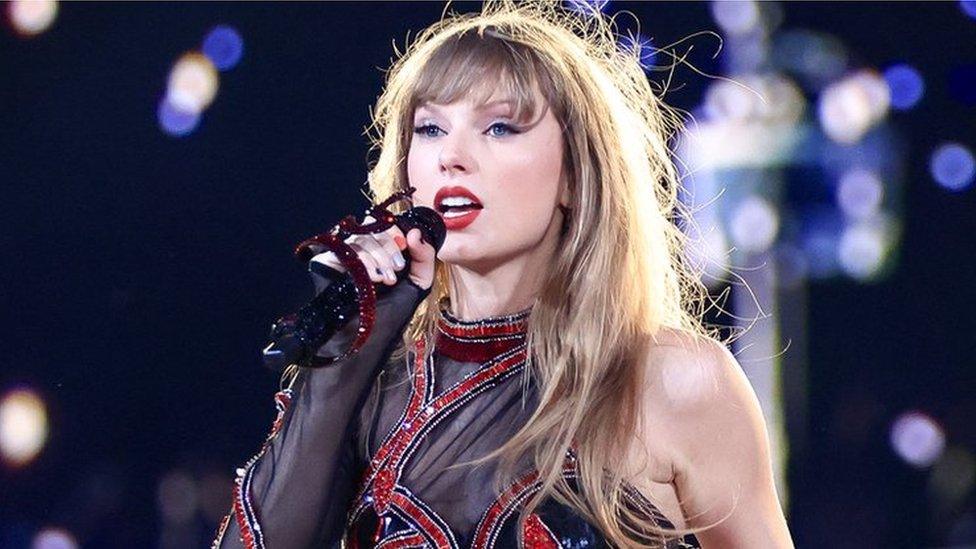Bad blood over Singapore Taylor Swift Eras tour subsidies
- Published
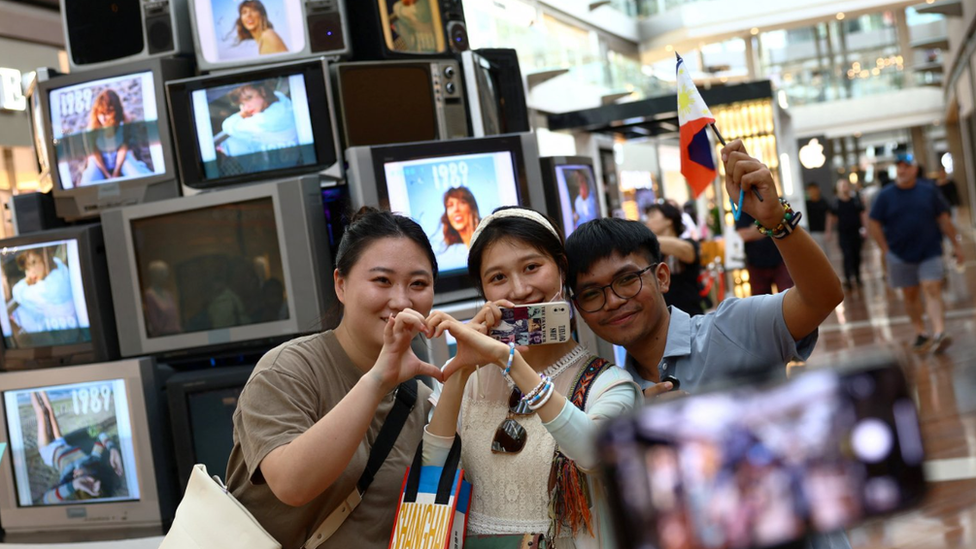
The Singapore leg of the Eras tour has Swifties flying in from around the region
In the glitzy Asian city-state of Singapore, the sequins are out, limousines polished and hotel pillows plumped.
The city's hosting Taylor Swift's Eras tour this week - an honour, but one that has come at a cost.
That price was initially reported to be as high as S$24 million (£14m; $18m) for the six shows to be exclusive to the South East Asian country.
Culture minister Edwin Tong has since told Singapore's CNA the figure was "nowhere as high" - although he still refused to be drawn on the exact figure. The broadcaster, however, suggested it may have been just S$2m for all six.
But the fact any money had been spent only came to light after an outburst from the prime minister of Thailand, who accused Singapore of paying concert organisers US$2-3m per night.
That triggered criticism across the region. In the Philippines, a lawmaker criticised the move, saying "this isn't what good neighbours do" - and called for a formal protest against the grant.
But while governments are seeing red - it's the fans who are paying the price, literally.
Swift is heard everywhere across South East Asia, home to roughly 700 million people - from alleyways in Ho Chi Minh to taxi cabs in Bangkok.
So for many it was a punch in the guts to learn all six shows would be held in the region's most expensive city.
Singapore's currency - one of the strongest in Asia - has long been a deterrent for visitors. But for a chance to see their idol, many of her fans are willing to grin and bear it.
Look what you made me do
Flight-loads of fans have been touching down at Singapore's Changi Airport all week, many coming from China and its territories.
Swift isn't playing in China so Singapore is the next best thing for many.
One woman flying in from Shenzhen told the BBC she and her friend had spent S$1,200 each on tickets alone. They've resorted to camping at a friend's house after hotel rates across the city surged.
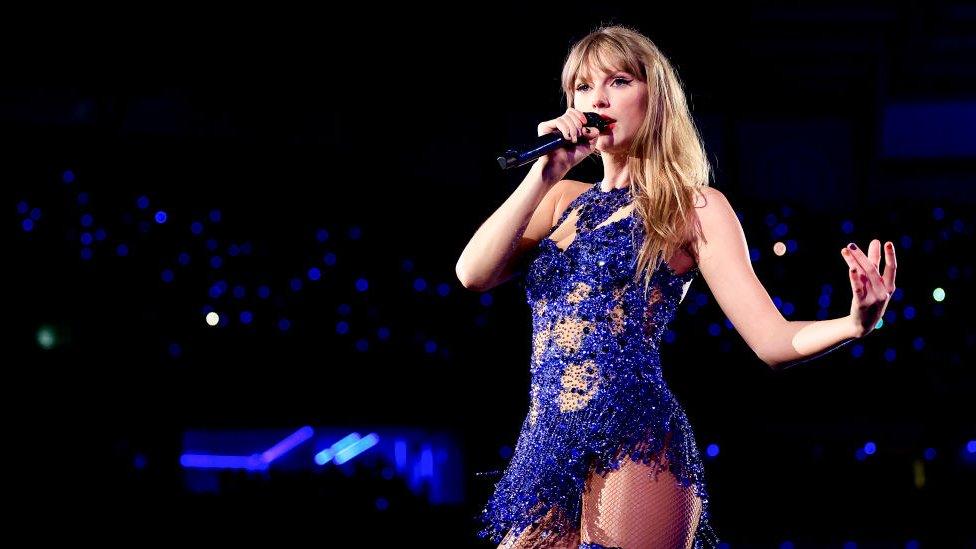
Taylor Swift in Sao Paulo
On the luxe end of things, the city's landmark hotel Marina Bay Sands has sold out of its S$50,000 Swift packages which included four VIP tickets and a three-night stay in a suite.
Then there's 22-year-old Allen Dungca in the Philippines, who scraped together his wages to take him and his mother to Singapore.
This Thursday, they'll take a four-hour bus ride to Manila, stay at an airport motel for the night, then grab their dawn flight the next day.
The enterprising student snapped up the travel package back in July. He eventually tracked down the tickets on a resale night, after weeks of desperate hunting.
"I am very lucky," he says of the S$400 outlay for seats in the nosebleed section. "The seller was kind and not a scalper."
Resales now are going for thousands. And he had almost fallen for a scam, a shady character named Pat Steve, later exposed online.
He estimates the whole endeavour is costing him S$2,000 - the monthly income of an upper-middle class family in the Philippines, a country where a fifth of the population lives under the poverty line.
"Right now, I'm a student with a part-time job and I can afford my wants and needs. But it's sad, other Swifties don't have any means or budget to watch her overseas and I know most Filipino Swifties love her so much."
The Philippines arguably has the most ardent Swift fan base - Spotify data showed Quezon City in Manila had played the most streams of the singer last year.
The pop star has toured in the Philippines before - but the bag of money from Singapore undoubtedly sweetened the deal, say analysts.
Clean, modern Singapore has long been seen as a base in the region for big events. It has the infrastructure, the transport links and a high-earning, expat-heavy population.
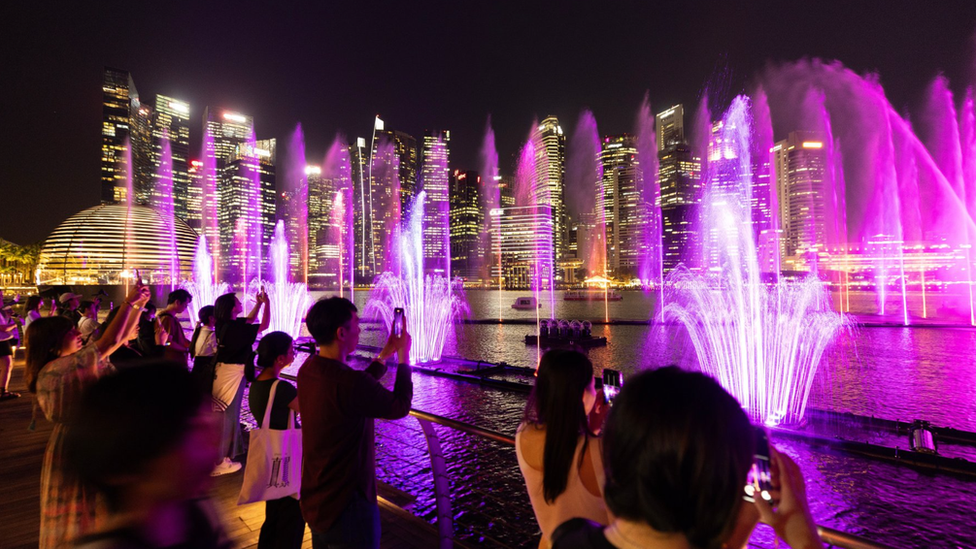
Swift-themed water and light shows on the bay are among the city's Swiftie attractions this week
It's also seen as reliably stable in a region which has experienced political chaos. A decade ago Swift cancelled her shows in Thailand because of the military coup and resulting protests.
Still, while it's common for governments around the world to give out subsidies and tax breaks to bring in events, the reported spend goes beyond anything else publicly known in Singapore.
Samer Hajjar, a marketing lecturer at the National University of Singapore, says it's "above average" even for the city-state.
And fans are quite blunt. "It's kinda greedy," says Mr Dunga. "But it's wise… because their economic response will be way more than that."
But will it be though?
Show me the money
In Australia, the leg of the tour preceding Singapore, officials suggested the tour had provided a A$145m "uplift" in consumer spending. More than 570,000 tickets were sold across seven nights in Sydney and Melbourne, nearly double the number sold for Singapore's six shows.
But not all of that money counts, says economists.
More than 90% of show-goers were probably local, estimates KPMG's chief economist Dr Brendan Rynne, so their dollars would be "just a transfer from one category of spending (or saving) to another".
Only foreign visitors would have been adding to the books - and they accounted for just 2% of visitors, he estimated. After doing the maths he projected Swift had added only A$10m (£5.1m; $6.5m) to GDP., external
Still, Australia didn't use public funds to have Swift play in the country, state government officials confirmed to the BBC. Neither did Japan, the only other Asian stop on the tour.
Singapore has said Swift's tour will bring certain economic benefits to the country.
But just how much net gain will be generated is unclear. The BBC has reached out to Singapore's tourism board but they have refused to reveal foreign visitor estimates or other modelling.
A local bank, Maybank, has suggested that consumer spending may top S$350m - but that's based on the very optimistic prediction of 70% of attendees being from out of town.
Even Singapore's Formula One Grand Prix only saw 49% of spectators from overseas in 2022, with a record 300,000 crowd.
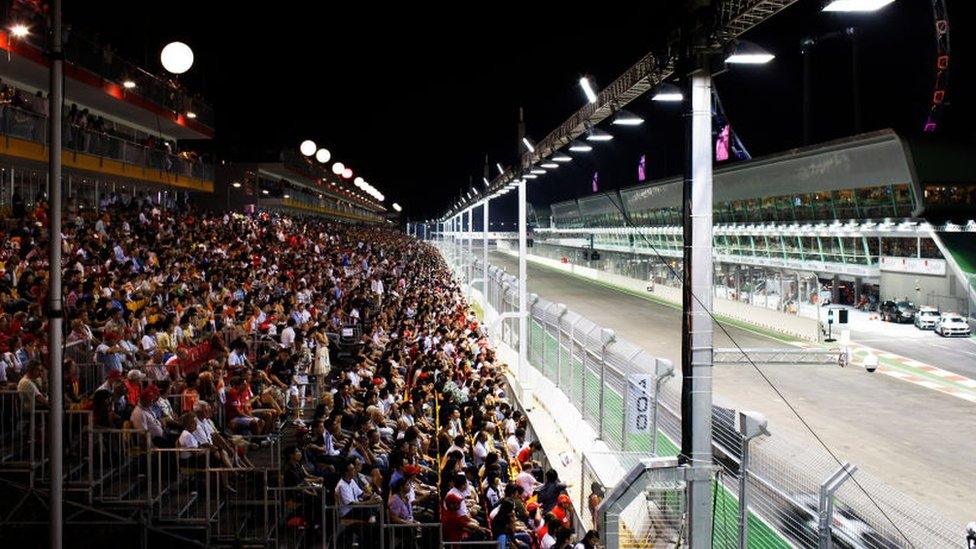
Singapore's F1 Grand Prix brings thousands of overseas visitors each year
When pressed on the numbers, Maybank's economist Erica Tay could not provide specifics, saying the 70% rate was based on Singapore's "potential catchment" and the bank was not interested in estimating net profit.
"Six concerts may not move a nation's economic growth materially, but the strategic value of Taylor Swift's endorsement of Singapore as a tourism destination outweighs that one-off boost," she said.
But business professor Julien Cayla from Singapore's Nanyang Technological University points out that public spend should be scrutinised - especially when it's only revealed to citizens by another country's government.
And in a country where welfare benefits are relatively limited - it could be seen as a fraught spend.
"To justify spending [reportedly] S$24 million on something that on the surface might not seem that critical to the economic health of the country over spending on people and public services… there's a tension there," Prof Cayla said.
Nonetheless he and others say that when it comes to planning tourism, governments have mandate to throw around money and Singapore isn't an exception.
"They don't necessarily like to advertise it. But the minute the government sees something that fits into a long-term strategy, it will sink government money in to support that," he says.
In a way, Singapore has just brought in Swift the same way it currently attracts huge multinational corporations.
"What's different here is that Taylor Swift as a business, is a very emotional business," he said.
"It's dealing with the emotions of 10-18 year olds, who are very sad to not see the concert happening in Bangkok or Jakarta."
And in the words of the songstress herself, that's caused a lot of bad blood.
Related topics
- Published12 February 2024
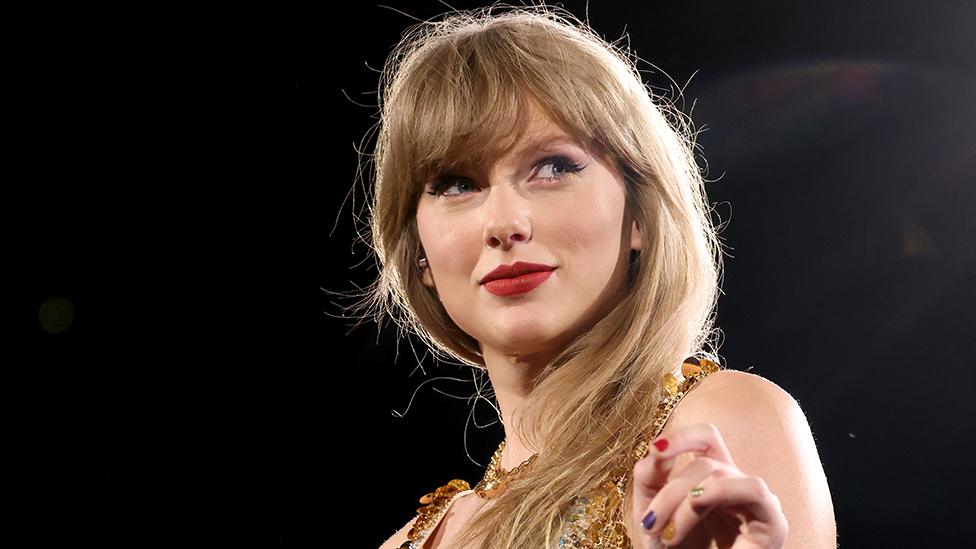
- Published22 February 2024

- Published27 December 2023
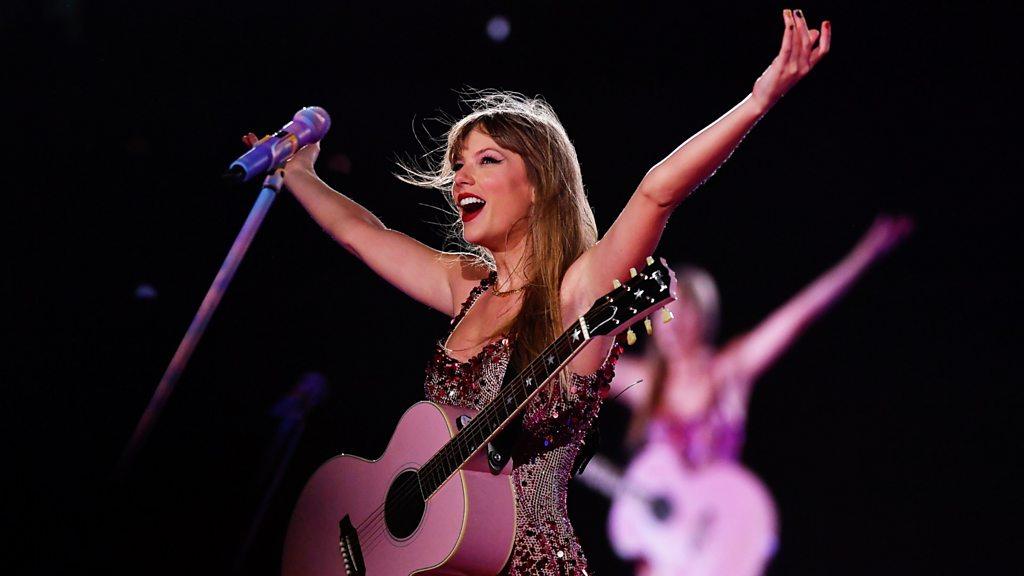
- Published13 February 2024

- Published8 February 2024
